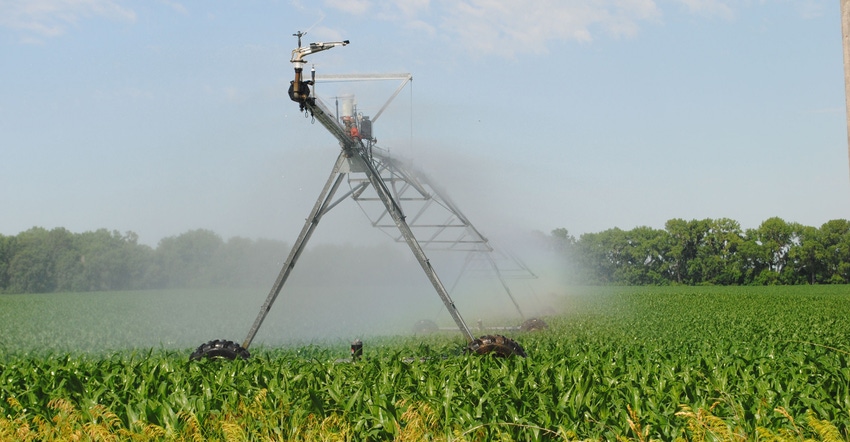
Last Friday the U.S. Circuit Court of Appeals (9th Circuit) issued an opinion that will impact irrigated cropland agriculture. Here’s why:
The Clean Water Act (CWA) requires a permit for a point source discharge of pollutants. Farms have a number of point-source discharges, but they are exempt from the CWA permit system. Initially, under the CWA, water flowing from an irrigated system to a navigable water required a CWA permit. Western state senators argued this was crazy. Natural rainwater or stormwater runoff from a farm was exempted from the CWA, but irrigated water runoff discharged from a farm was not.
So the law was changed. Today the law provides an exception for discharges of water from a farm if those “...discharges [are] composed entirely of return flows from irrigated agriculture.”
A little background
The case arose from the Central Valley Project (CVP), a federal water management project which has put a tile drainage system under farmlands in California’s Central Valley. The case involves arcane statutory construction and burden of proof questions.
The U.S. District Court made mistakes as to burden of proof issues which will not be discussed here. But the factual impacts are very important to any farmer involved in irrigating farm cropland.
To be exempt from the CWA the water flowing from the field means that these discharges must come from activities related to “crop production.” The Circuit Court of Appeals panel objected as to how the District Court interpreted the word “entirely”.
Plaintiffs, which included the Pacific Coast Federation of Fishermen’s Association, Friends of the River, and the Institute for Fisheries Resources, claimed that not all the irrigated water being discharged came from crop production. These plaintiffs claimed that some of the groundwater included not only irrigation water but also from lands which were formerly farmlands but now housed solar products or solar panels.
Transporting water
The CVP transports water from the Sacramento River to regions of the Central Valley. After this water is used, there is salt and other pollutants which are drained away through a network of tiles, and the residue from irrigation is discharged through these tiles to other rivers or bays.
The plaintiffs in this case argue that there is “seepage” from other lands and highways which eventually discharge into the underground tile system. Consequently, plaintiffs argue there are pollutants in the tile system which do not come exclusively from the irrigation process and cropland.
The U.S. District Court believed entirely meant the “majority” of water in a tile drain system needed to be from cropland production to receive an exemption from a CWA permit. In fact, “The district court rejected a literal interpretation of “entirely” because it reasoned that it ‘would lead to an absurd result.”
The U.S. Court of Appeals panel said, “We disagree.”
The San Francisco court -- the seat of great agricultural knowledge -- said that it believed “...discharges that include [irrigation] return flows from activities “unrelated” to crop production to be excluded from the statutory exception, thus requiring an NPDES permit for such discharges.” This decision overturns the district court’s view that “entirety” cannot mean majority.
Dangerous outcome
The dangerous outcome for farmers is that if their irrigation system discharges eventually through a tile system into a water of the U.S., the farmer defendant will be required to prove that all of the discharges come from irrigation practices. This will put an enormous burden on farmers who irrigate and who have a tile system under their irrigated land.
Any highway runoff or discharge from other neighboring properties most certainly can seep into a farmer’s tile system. The Circuit Court of Appeals in San Francisco has now concluded if non-crop irrigation water seeps into the crop tile system, the discharge of that water will require an NPDES permit.
This case is not over because the Circuit Court of Appeals reversed the District court and remanded this decision back to the court to make corrections.
Even though this is a California case it should be read very carefully by all of those engage in crop land irrigation.
The opinions of the author are not necessarily those of Farm Futures or Farm Progress.
About the Author(s)
You May Also Like




